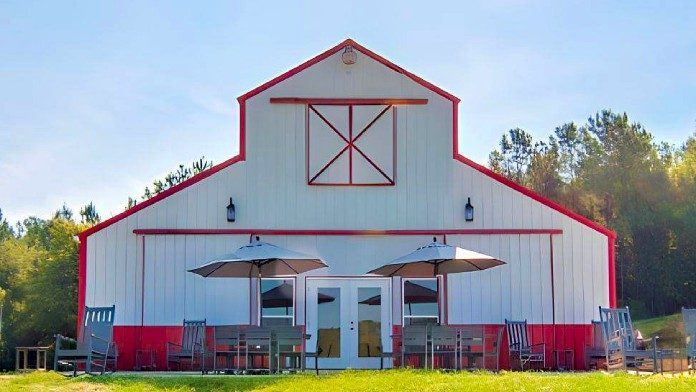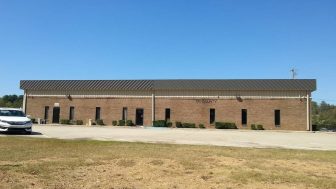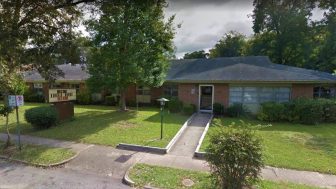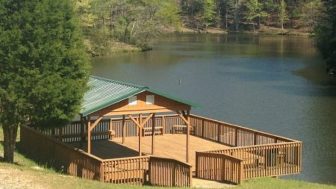Impact Recovery Center – Birmingham Drug Rehab
2900 Cahaba Rd
Suite 100A Mountain Brook
Birmingham, AL 35223

About Impact Recovery Center – Birmingham Drug Rehab
On a private 61 acre estate in Alabama, Impact Recovery Center Birmingham is a structured alcohol and drug rehab in St. Clair County. Centered in 12 step immersion, Impact Recovery Center has the expertise and the lived experience to guide people with substance use disorders into recovery.
Typically, stays at Impact Recovery residential treatment last 60 days, allowing patients to move through the comprehensive recovery program that includes instructor led recovery workshops, life skills training, goal setting, employment skills development, financial management, and health and fitness workouts. Located on a scenic estate, amenities at Impact Recovery Center include Saturday cookouts, a gym, a basketball court, fire pits, picnic areas, pickleball, a driving range, nature trails, a golf course, and a softball field.
Amenities
Private drug rehab provides a comfortable, secure environment that allows you to focus on doing the work to get your life back on track. Benefits include a higher staff-to-client ratio, increased one-on-one time with therapists and healthcare providers, private rooms for clients, and customized forms of therapy.
Residential drug rehab provides the comforts of home with the therapeutic support needed to successfully recover. Benefits of an inpatient program include increased safety, a higher success rate, and the time and distance given to focus on recovery. Residential drug rehabs are often the preferred method of treatment, as they can be tailored to meet specific needs, offer focused therapeutic care, and provide the necessary tools to sustain recovery.
Recreational therapy uniquely combines therapeutic interventions with an activity, like horse-riding, hiking, wilderness therapy, basketball, tennis, or a full workout. Benefits of recreational therapy include providing a healthy way to work through the emotions of recovery, learning to build and maintain relationships, improving communication skills, and building self-esteem.
Yoga and meditation are great activities to support your recovery process during alcohol or drug rehab. These therapies have been around for centuries, and they are an effective way to improve well-being. Combining addiction treatment, yoga, and meditation can reduce cravings, improve sleep, relieve anxiety and depression, provide stress relief, promote relaxation, support emotional healing, and improve energy levels.
Treatment centers with a yoga studio offer a special form of holistic therapy during the recovery process. Yoga boosts mindfulness, a sense of calm, and healthy reflection during drug rehab via breathing exercises, stretching, and a progression of specific postures.
In order to maintain a sense of autonomy, many private rehab facilities offer clients the ability to choose their own private rooms. The privacy and personal space ensure that the recovery process is as comfortable as possible.
When used as part of an evidence-based treatment plan, basketball can boost physical and mental health, lead to sharper thinking, and facilitate improved self-esteem. Drug rehabs with a basketball court also place a focus on teamwork and cooperation.
There are many pathways to recovery and some journeys take a more labor-intensive approach, by attending a farm-based drug rehab. Farm life has many parallels with recovery: it requires constant tending, nurturing, and creating the conditions necessary to thrive. The benefits of a farm program include learning new skills, building a recovery community, peer support, and contributing to a greater ecosystem.
Addiction Treatment Programs
Adult rehab programs in Alabama provide addiction treatment for men and women ages 18 and older. Treatment focuses on helping adults break their dependence on substances and learn ways to live a sober lifestyle.
The goal of alcohol rehab in Alabama is to help individuals gain tools for long-term sobriety. Treatment empowers participants whose relationships, career, and health have been affected by alcohol use to live a successful life.
Men’s rehab in Alabama offers treatment for men who have a substance use disorder. This treatment is designed to target issues that men commonly face when struggling with addiction.
Women often develop substance use disorders differently than men. Women’s rehab in Alabama addresses these unique developments and provides treatment designed specifically for women.
The goal of opioid rehab in Alabama is to bring recovery to individuals suffering from opioid use disorder. Treatment breaks through to root issues that drive negative behaviors and helps men and women break free from dependence on opioids.
Drug rehab in Alabama provides medical or psychotherapeutic treatment for drug dependency. Methods of treatment often include a combination of medication, counseling, and recreational therapies.
Fitness therapy is an evidence-based complementary approach to addiction recovery and mental health care. Based on mounting scientific evidence of the benefits of physical activity in improving mood, enhancing clients’ sense of wellbeing, and decreasing depression and anxiety, fitness therapy encompasses a wide spectrum of intensities, from gentle yoga, qigong, and tai chi to weight training, kickboxing, and other highly physical activities.
Levels of Care
Alabama dual diagnosis treatment takes an integrated approach to substance abuse and mental health disorders that occur simultaneously. Since co-occurring disorders tend to have overlapping symptoms, treating both conditions at the same time is essential for recovery.
Rehab aftercare in Alabama begins as soon as your rehab treatment ends. It provides continued support to prevent relapse. Aftercare may include 12-step meetings, follow-up counseling, and ongoing life coaching, which may last for a few weeks, months, or a year or more.
Residential or inpatient rehab in Alabama involves living at the rehab facility and receiving 24/7 supervised care. A combination of treatment interventions is offered, including individual and group therapy, nutritional counseling, experiential therapies, and medication.
When you make the decision to enter an addiction treatment program, detox is usually the first step. Detox in Alabama includes round-the-clock supervision by professional staff, and medications are often used to ease withdrawal symptoms.
Peer support is crucial to recovery, and the first few months of sobriety are often the most vulnerable. Sober living in Alabama provides safe housing and structured living conditions to help you maintain abstinence during this time.
Intervention services in Alabama can be an invaluable addiction treatment tool for those looking to get a loved one started on a path toward recovery. Intervention professionals can help you plan and facilitate an intervention, provide access to resources, and assist in developing a personalized treatment plan upon program admission.



